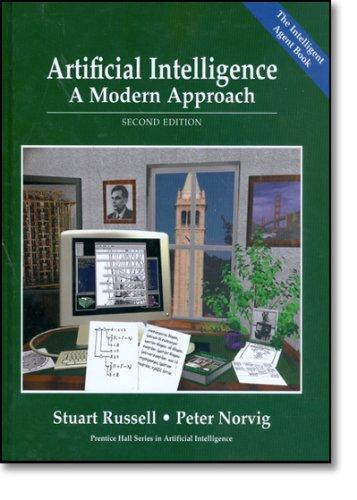Three soccer teams A, B, and C, play each other once. Each match is between two teams,
Question:
Three soccer teams A, B, and C, play each other once. Each match is between two teams, and can be won, drawn, or lost. Each team has a fixed, unknown degree of qualityan integer ranging from 0 to 3-and the outcome of a match depends probabilistically on the difference in quality between the two teams.
a. Construct a relational probability model to describe this domain, and suggest numerical values for all the necessary probability distributions.
b. Construct the equivalent Bayesian network.
c. Suppose that in the first two matches A beats B and draws with C. Using an exact inference algorithm of your choice, compute the posterior distribution for the outcome of the third match.
d. Suppose there are n teams in the league and we have the results for all but the last match. How does the complexity of predicting the last game vary with n?
e. Investigate the application of MCMC to this problem. How quickly does it converge in practice and how well does it scale?
Step by Step Answer:

Artificial Intelligence: A Modern Approach
ISBN: 9780137903955
2nd Edition
Authors: Stuart Russell, Peter Norvig






